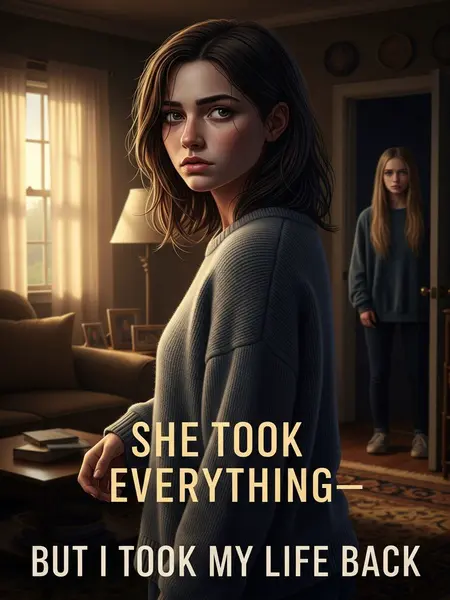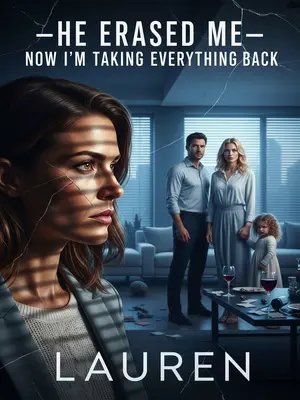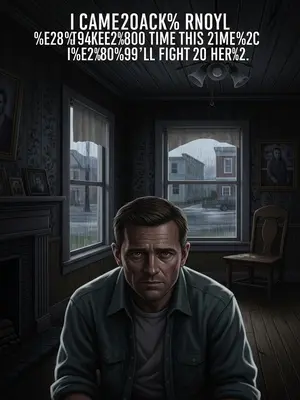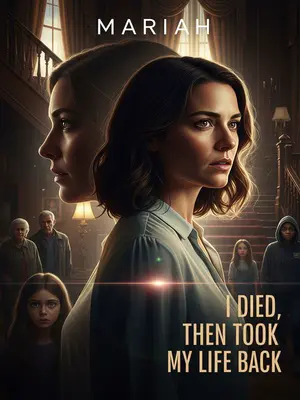Chapter 1: The Score That Started It All
My SAT score was 1560—not to brag, but that made me the third highest scorer in the city, at least for the humanities crowd.
The number practically glowed on the screen, like a neon sign screaming: you actually pulled it off. I just stared at it, heart pounding, not sure if I was about to laugh or cry. For a second, I let myself picture telling Dad. He’d probably just grin, give me a big pat on the back, and say, “Knew you had it in you, kid.”
No joke, I could’ve picked any of the top ten schools in the country.
Seriously, it was the kind of score guidance counselors brag about for years. They’d probably want to hang my photo in the front office, if only I went to a school that actually celebrated that sort of thing.
Maple Heights High. Not just a bad school—legendary for all the wrong reasons. Dead last in the city, every single year.
Maple Heights wasn’t just a bad school—it was the punchline to a joke. The kind of place parents threatened their kids with if they didn’t shape up. Our mascot was a wilted maple leaf, the gym ceiling leaked every time it rained, and even the vending machines were like, “Nice try,” eating your quarters and giving nothing back. It was like something out of a bad Netflix comedy—except it was my real life.
In the school’s twenty-year history, no student had ever made it into the Ivies or anywhere fancy. I was the only one.
Some teachers barely remembered my name. Most of the time, I was just the weird quiet girl who didn’t get into fights and kept her head down. Nobody expected much from a kid at Maple Heights, least of all someone like me.
No one had a clue how much I’d sacrificed to get here.
There were nights I fell asleep at my desk, head buried in a pile of textbooks, and woke up with pencil marks on my cheek. Classy, right? Most people just saw a quiet girl with dark circles. They didn’t know about the weight I carried every single day.
In fifth grade, my dad died in an accident at the factory. Something went wrong with the machines. They couldn’t save him.
I still remember the phone call. The way my mom’s face just changed—like the world had dropped out from under her. The silence in the house after, so thick you could hear every creak in the walls.
My mom was a mess. She cried all the time, barely slept.
She’d sit at the kitchen table, clutching a mug of cold coffee, staring into space. Sometimes I’d wake up at night and hear her sobbing in the next room, muffling her cries with a pillow. It made the house feel haunted.
I was sad and scared too, but I could tell my mom was even more fragile. I had to force myself to be strong.
Just like that, I was the grown-up. I swallowed my tears, tried to smile, and told her things would be okay—even when I didn’t believe it myself.
Back then, I juggled school with forcing myself to stay upbeat, learning to do chores, and comforting my mom.
I’d pack my own lunch, fold laundry, and sweep the kitchen floor while humming whatever pop song was stuck in my head, just to keep the mood light. I learned how to make boxed mac and cheese, because it was the only thing I could cook without burning.
At night, when the house was finally quiet, I’d pull out Dad’s photo and cry under the covers.
I’d wait until the house was dark and quiet, then pull out his picture—creased at the corners from being hugged so many times. Sometimes I’d whisper goodnight to him, just in case he could hear me wherever he was.
Sorry, Dad. I do miss you, I swear. It’s just... I’m so busy and tired all the time. I only get to think about you at night. Please don’t be mad. I haven’t forgotten you.
I’d squeeze the photo so hard my fingers ached. I’d promise him I’d take care of Mom, that I’d make him proud. I’d list all the little things I did that day—just in case he was keeping track somewhere.
I thought it would just be me and Mom from then on.
We became a team, or so I thought. The two of us against the world. Or so I told myself, like we were in some indie movie. I told myself we didn’t need anyone else.
I thought her grief was because she loved Dad so much.
I believed it. I wanted to believe it. It made her tears mean something, made our little family feel special.
But a year later, someone from church introduced her to a new guy. After seeing him a few times, she remarried in a heartbeat—taking me and the $30,000 payout from my dad’s accident.
It happened so fast, it gave me whiplash. One week, we were lighting a candle for Dad at the anniversary service. The next, Mom was wearing lipstick again and talking about starting fresh. I didn’t even know what to say.
It’s not that I objected to her remarrying. I just couldn’t understand her behavior.
I mean, I was a kid, but even I knew you didn’t just pick up and move on like that. It felt like she’d skipped a chapter. Like we just... jumped ahead, leaving Dad behind.
In my memory, my parents’ relationship was always good.
I remember Sunday afternoons, Dad helping Mom with the groceries, laughing about the price of tomatoes. They’d bicker about silly things, but it always ended with a smile. That’s the kind of love I thought lasted forever.
Dad worked; Mom was a homemaker. He handled things outside, she managed inside. They ran our little family well. I can still smell Dad’s old cologne and the way Mom’s cookies made the house warm on rainy days.
It wasn’t fancy, but it was ours. Dad fixed the leaky faucet; Mom made sure we never ran out of milk. They were a team, and I felt safe in that routine.
Dad was a factory technician. His salary wasn’t high, but our expenses were low, and Mom was frugal. We lived pretty well.
No big vacations, but there was always ice cream on Fridays. That mattered more, anyway. Sometimes Dad would splurge on a Redbox movie rental, and we’d watch it together on the old couch.
Dad worked hard, and Mom felt for him, always trying new recipes to make him delicious meals. She became a great cook that way.
She’d scour the library for cookbooks, try out weird casseroles, and beam when Dad went back for seconds. She’d always say, “Your father works hard. He deserves a good meal.”
So I didn’t get it. Her grief after Dad died was real—so how could she move on so quickly? Did love just have an expiration date?
I replayed the old scenes in my mind, searching for clues. Had I missed something? Was it all just an act? The questions kept me up at night.
After she met him, Mom’s sadness lifted day by day. Barely a month later, she was happily telling me she was getting married.
She started humming again while doing chores. There was a new spring in her step, and she’d talk about “our future” like the past year had been a bad dream. I couldn’t wrap my head around it.
I just couldn’t understand. Can you really forget someone that fast?
It felt like she’d erased Dad from the family photos, like he was just a chapter she’d closed and shelved away. I wanted to shake her and ask if she remembered him at all.
Dad had only been gone a year. And already, she was... happy, throwing herself into someone else’s arms.
It was like watching someone flip a switch. One minute she was lost in memories, the next she was planning a wedding. I felt like I was the only one still grieving.
Worse, she’d only known the guy for a month.
I mean, who does that? Even my friends at school knew better than to trust a stranger that quickly. It was like she’d forgotten every cautionary tale she ever told me.
She was a grown woman with a daughter. Shouldn’t she be more cautious? What about his background, his personality, his character? Aren’t those things you only learn over time?
I worried about all the things she wasn’t asking: Does he have a temper? What does he want from us? What’s he hiding? It made me anxious in a way I couldn’t explain.
Why was she acting like a naive girl, impulsive and lovestruck, rushing into marriage with someone she barely knew?
It was like she was a teenager again, doodling his name in the margins of her notebook. I wanted to scream: You’re not sixteen, Mom! You’re all I have left!
I’d tried to talk to her seriously about it.
I sat her down at the kitchen table, tried to sound grown-up. My voice shook, but I pushed through. I needed her to see how worried I was.
Her explanation: as a thirty-something widow with a child, finding a man willing to be with her was already a miracle.
She looked at me with sad, tired eyes. She took a breath. “Men don’t want women like me, Ava. Not with baggage. I’m lucky anyone even looked twice.”
She still looked young. We had an apartment. Some savings from Dad. It wasn’t like we were desperate. I tried to boost her up: “You’re pretty, Mom. We have a place to live, some savings. You don’t have to settle.” I wanted her to believe in herself the way I did.
I told her it was better to stay single than settle. She should really get to know someone before deciding.
I promised her, “We’ll be okay. I’ll work hard, get scholarships. You don’t have to rush into anything.” I meant every word.
I even reassured her: don’t rush just because you haven’t found the right person. We have savings, no mortgage. She could get a part-time job, and even if the pay wasn’t high, if we were careful, we’d be fine. Once I graduated college, I’d support her.
I pictured us in a little apartment, just the two of us, eating takeout and laughing at old sitcoms. It sounded safe. It sounded like home.
But she wouldn’t listen. She kept putting herself down, saying she was too old to wait, and grabbed the first man she could find.
She made up her mind, and nothing I said could change it. She clung to the idea that this was her only shot at happiness.
I was just a kid back then. There was nothing I could do. You can’t stop the rain, right? Or your mom from moving on.
I tried everything—pleading, arguing, even sulking. But in the end, I had to accept it. Some things are just out of your hands.













